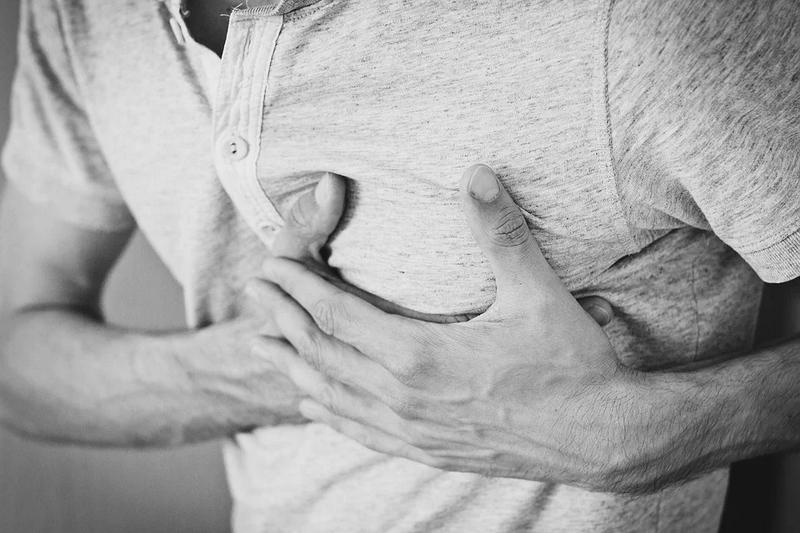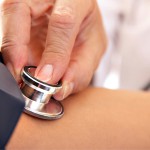ELECTROCARDIOGRAM (ECG) in Singapore


An electrocardiogram also known as an ECG or EKG, is a test that records the heart's electrical activity. It is a simple straightforward, painless test and non-invasive procedure that helps doctors diagnose and monitor various heart conditions. In Singapore, ECG tests are widely available and can be done at hospitals, clinics, and specialised cardiology centres.
If you're wondering where you can get an ECG done in Singapore, look no further. You may proceed to book an appointment for an ECG consultation with one of the best cardiologists in Singapore or contact us for further details to schedule your ECG test.
What Is an Electrocardiogram (ECG)?
An ECG is a medical test that tracks the heart's electrical impulses. It involves attaching electrode patches to the skin, which detect and record the heart's electrical signals. The resulting tracings provide valuable information about the heart and can help identify any irregular heart rhythm, highlighting the importance of recording an ECG early in the diagnostic process.
Understanding the Basics of Electrocardiography
Electrocardiography is the process of recording the electrical activity of the heart. The electrodes, attached to specific arms, legs, and chest locations, are connected to an ECG machine. This machine amplifies the electrical impulses and converts them into a visual representation on paper or a digital monitor.
Why Is an ECG Test Performed?
Some reasons to perform an ECG include checking for the cause of chest pain or symptoms of heart disease. It can help diagnose heart diseases, assess the effectiveness of heart medications, monitor the progression of heart conditions, and evaluate the heart's overall health. It is routinely performed during regular check-ups, before surgeries, and in emergencies.
How to Prepare for an ECG Test?
Patients are generally advised to wear loose-fitting clothing that allows easy access to the chest area, as the electrodes need to be attached to the skin. It is also important to avoid applying lotions, oils, or powders to the chest on the test day, as they may interfere with the test. Sometimes, the technician may shave small areas to ensure proper electrode contact. Properly attaching the electrodes is essential for the accuracy of the test, ensuring that the electrical signals from the heart are captured effectively.
How Does an Electrocardiogram (ECG) Work?
An ECG measures the heart's electrical signals as it beats. These signals are then displayed as waves on the ECG tracing, providing valuable information about the heart's electrical activity and overall health.
Exploring the Electrical Activity of the Heart
The heart's electrical activity begins in the sinoatrial (SA) node, which is located in the right atrium. From there, the electrical signals travel through specific pathways, causing the heart to contract and pump blood. The ECG records the timing and strength of these electrical signals, helping doctors analyse the heart's rhythm and detect any abnormalities.
Types of ECG Tests
Several types of ECG tests are available, depending on the patient's specific needs. A resting ECG is the most common, where the patient lies down and relaxes while the ECG is recorded.
On the other hand, a stress test involves exercising on a treadmill or a stationary bike while the ECG is continuously monitored. Other specialised ECG tests include Holter monitoring and ambulatory ECGs, which provide extended recordings of the heart's electrical activity over a period of time. Each type reinforces the importance of early ECG recordings for comprehensive heart health analysis.
What Does an EKG Test Measure?
An EKG test measures various aspects of the heart's electrical activity, including the heart rate, the heart rhythm's regularity, and any abnormal electrical patterns. It can also indicate if there is reduced blood flow to the heart muscle, which may be an early sign of coronary artery disease.
Interpreting ECG Results
Interpreting ECG results requires professional expertise as it involves analysing the complex patterns and rhythms of the heart. A trained cardiologist or healthcare provider can assess the ECG tracings and determine whether the heart's electrical activity is normal or abnormal.
Understanding Normal and Abnormal Heart Rhythms
A normal ECG will show a regular and coordinated pattern of electrical activity, indicating a healthy functioning heart. However, an abnormal ECG can indicate various heart conditions, such as arrhythmias, heart attacks, or structural abnormalities.
How an ECG Machine Diagnoses Heart Diseases?
An ECG machine plays a crucial role in diagnosing heart diseases. By analysing the ECG tracings, medical professionals can identify abnormal heart rhythms, detect signs of previous heart attacks, determine the effectiveness of heart medications, and monitor the progress of heart conditions over time.
Significance of ECG in Detecting Coronary Issues
One of the primary uses of an ECG is detecting coronary artery disease, which is characterised by reduced blood flow to the heart muscle. Changes in the ECG patterns can indicate a lack of oxygen to the heart, suggesting the presence of blocked or narrowed coronary arteries.
Other Applications of ECG
Aside from diagnosing heart diseases, an ECG has other important applications in cardiology. It can be used to evaluate chest pain, especially in emergencies, to assess overall heart health during stress tests, and to aid in diagnosing myocardial infarction (heart attack).
ECG in Evaluating Chest Pain
Chest pain can be a symptom of various heart conditions. An ECG is often performed to evaluate the heart's electrical activity during chest pain episodes. It helps doctors determine if the pain is related to a potential cardiac problem and guides further diagnostic and treatment decisions.
ECG Stress Tests for Assessing Heart Health
Stress tests involve exercising the heart by walking on a treadmill or pedalling a stationary bike while the ECG is continuously monitored. This helps assess the heart's response to physical exertion, identify abnormalities, and determine overall cardiovascular fitness.
The Role of ECG in Myocardial Infarction Diagnosis
An ECG is crucial in the diagnosis of myocardial infarction, commonly known as a heart attack. Certain patterns in the ECG tracings, such as ST-segment elevation, can indicate an acute blockage of the coronary arteries and guide immediate medical intervention.
Getting an ECG in Singapore
In Singapore, individuals who require an ECG can seek services from various cardiology providers. Choosing a reputable and accredited provider is important to ensure accurate results and professional interpretation of the ECG tracings.
For an ECG test in Singapore,The Harley Street Heart & Vascular Centre stands as an exceptional healthcare service, a beacon of trust and excellence in diagnostic cardiology.
The Harley Street Heart & Vascular Centre Medical Centre delivers trustworthy and accurate ECG diagnostics regarding your heart's health. Your heart matters, and so does the choice you make for its health.
Choosing a Cardiology Provider for ECG
When selecting a cardiology provider for an ECG test, it is advisable to consider factors such as their expertise, experience, and the availability of modern ECG equipment. Researching patient reviews and consulting with healthcare professionals can help make an informed decision.
The Harley Street Heart & Vascular Centre offers a top-tier experience in cardiac diagnostics and a history of serving patients with precision and care. The Harley Street Heart & Vascular Centre boasts a team of skilled cardiology professionals who ensure accurate ECG readings.
How to Properly Shave for ECG Electrode Placement?
Before an ECG test, shaving small areas of hair on the chest or limbs may be necessary to ensure proper electrode placement. This helps establish good contact between the electrodes and the skin, ensuring accurate heart electrical signal recording.
What Precautions Should Be Taken Before, During, and After the ECG?
ECG is a non-invasive and safe procedure, and most people do not experience any discomfort. If you have specific concerns or questions about the ECG procedure, discussing them with your healthcare provider before the test is recommended.
Before the ECG
Clothing
Wear loose-fitting clothing that allows easy access to your chest and limbs. Avoid clothing with metal snaps, zippers, or buttons, as they can interfere with the ECG electrodes.
Jewellery and Accessories
Remove jewellery, watches, and accessories from your chest and wrists to ensure accurate electrode placement.
Medications
Inform the healthcare provider about any medications you take, as some might affect your heart's electrical activity. No need to avoid eating or drinking before or after the test. You can eat as usual. You don't have to fast or skip meals; there's no special diet or restrictions.
Skin Preparation
Make sure your skin is clean and dry. Avoid applying lotions, oils, medications, serums, or creams on the chest area before the test, as they can interfere with electrode adhesion.
During the ECG
Relaxation
Remain still and relaxed during the ECG recording to obtain accurate readings.
Electrode Placement
Electrodes (small adhesive patches) will be placed on your chest, arms, and legs. The healthcare provider will clean the skin before attaching them.
Breathing
Follow the provider's instructions, which might include holding your breath briefly during certain portions of the test.
After the ECG
Electrode Removal
After the test, the electrodes will be removed. Any residual adhesive can be easily cleaned off with water.
Resume Normal Activities
You can resume your normal activities after the ECG. There are usually no restrictions or post-test precautions needed. You don't need to avoid exercise or heavy lifting before or after the test.
Discuss Results
Depending on the healthcare setting, your ECG results might be discussed with you immediately, or they could be reviewed by a healthcare provider, normally a cardiologist, who will explain the findings to you during a follow-up appointment. Remember, an ECG is a simple and safe test, and you don't need to worry about it. If you have any questions or concerns, just ask the nurse or doctor before the test.
Understanding the ECG Process and Test Results
Understanding the ECG process and the interpretation of the test results is important for patients. Healthcare providers usually explain the procedure, discuss any abnormal findings, and recommend appropriate follow-up actions based on the ECG tracings.
Frequently Asked Questions About ECG
While information online about ECG may be useful and informative, it is best to always consult a medical professional for accurate diagnosis and appropriate treatment. Here are some frequently asked questions about ECG:
What Is an Electrocardiogram Used to Diagnose?
An electrocardiogram (ECG) is used to diagnose various heart-related conditions and abnormalities primarily related to the heart's electrical activity. While an ECG is valuable for detecting certain heart conditions, it has limitations and might not be able to diagnose all types of heart problems. Other tests, such as echocardiograms, stress tests, and cardiac imaging, might be needed for a comprehensive evaluation, especially when assessing heart structure and function.
What Is the Difference Between ECG and Echocardiogram?
While ECG focuses on the heart's electrical aspects, an echocardiogram provides a more comprehensive view of both the heart's electrical and mechanical functions. They are often used together for a thorough assessment of cardiac health.
How Much Does It Cost for an ECG in Singapore?
In Singapore, basic medical procedures like ECGs are typically covered by the country's healthcare system for citizens and permanent residents through subsidies provided by the government. The cost might be significantly lower in public healthcare institutions compared to private clinics or hospitals.
Is ECG Enough to Detect Heart Problems?
An ECG spots electrical heart issues but can't catch all problems. It's great for arrhythmias but not for structure, valve, or blood flow problems. Doctors combine tests like echocardiograms, stress tests, and more for a complete view. Consult a doctor for the right tests based on symptoms.
Which Is More Accurate ECG or Echocardiogram?
Both tests are accurate for their intended uses. ECGs excel at spotting electrical issues, while echocardiograms excel at visualising heart structure and function. The choice of test depends on the clinical concern. Often, both tests are combined for a thorough cardiac evaluation. Consult a medical professional for test selection. Accuracy relies on equipment quality, technician skill, and physician expertise.
How long does it take to get ECG results?
The time taken to receive ECG results can vary. Typically, preliminary results are available immediately after the test. However, a detailed analysis and interpretation by a cardiologist might require a few hours to a couple of days, depending on the complexity of the case.


